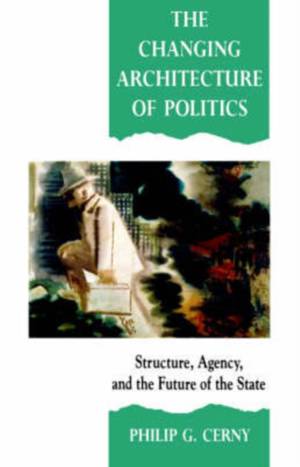
- Retrait gratuit dans votre magasin Club
- 7.000.000 titres dans notre catalogue
- Payer en toute sécurité
- Toujours un magasin près de chez vous
- Retrait gratuit dans votre magasin Club
- 7.000.0000 titres dans notre catalogue
- Payer en toute sécurité
- Toujours un magasin près de chez vous
The Changing Architecture of Politics
Structure, Agency and the Future of the State
Philip G Cerny
Livre broché | Anglais
132,95 €
+ 265 points
Description
This original analysis of structuration, agency and the state offers an incisive explanation of the changing nature of the state.
Cerny argues that the state is not being transcended; the architecture of politics is not moving beyond the nation-state despite the emergence of transnational structures. He points to the movement of many states towards the model of the `competition state′, and away from the model of `welfare state′, as the major contemporary change in the role of the state. He asserts that new forms of political action will have to evolve if the state itself is to be controlled and used for the pursuit of deeper human values in the 21st century.
Spécifications
Parties prenantes
- Auteur(s) :
- Editeur:
Contenu
- Nombre de pages :
- 288
- Langue:
- Anglais
Caractéristiques
- EAN:
- 9780803982567
- Date de parution :
- 01-04-90
- Format:
- Livre broché
- Format numérique:
- Trade paperback (VS)
- Dimensions :
- 161 mm x 217 mm
- Poids :
- 399 g

Les avis
Nous publions uniquement les avis qui respectent les conditions requises. Consultez nos conditions pour les avis.






